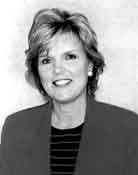 | The Reverend Doctor Cathy Northrup was born in Ft. Meade, MD, and was raised in a variety of places in the United State and Germany, as her father was in Counter Intelligence with the Army. She graduated summa cum laude, Phi Beta Kappa, from Hamline University in St. Paul, MN, with a double major in English and Religion. She graduated from Georgetown Law Center in Washington, DC, and practiced law with the Federal Reserve Board for a number of years before attending Union Theological Seminaryin Richmond, VA. She graduated from Union, and served several churches in North and South Carolina, at the same time obtaining her Doctor of Ministry from Princeton Theological Seminary in Princeton, NJ. Dr. Northrup is currently the Pastor/Head of Staff of First Presbyterian Church, Wichita, KS. She is married and has two black Labrador dogs who were rescued from abusive situations. You can contact Dr. Northrup at cnorthrup@firstpresbywichita.org or by phone at (316) 263-0248, ext. 26. |
Religion
2009-11-01 15:55:00
Are the Three Persons in God equal?
Question: In the Bible: The Gospel of St. John (chapter 14, verse 28) quotes Jesus saying: “You have heard that I said to you: ‘I am going away, and I will come back to you.’ If you truly loved me, you would rejoice to have me go to the Father, for the Father is greater than I.” Doesn’t this statement somewhat contradict the belief in the Trinity that God the Father, God the Son, and God the Holy Spirit, are co-equal?
Answer: In your question, you wonder about Jesus’ words in John 14:28, where he says “for the Father is greater than I.” You ask whether this statement contradicts the Trinitarian understanding that the Father, Son, and Holy Spirit, are equal. It is a good question, for the words, on their face, do seem to contradict this understanding.
For help in interpreting John, I often turn to the great Johannine scholar Raymond Brown. In a commentary on this passage, he writes that the statement has an interesting history. In fact, it was used by Arius in the great debate about Jesus’ divinity and humanity. Arius used it to argue that Jesus was not fully divine. The early church fathers understood Jesus’ words here in another way, however. They understood Jesus to be speaking here as a human, noting that God is greater than any human. They also understood Jesus as the divine Son to be equal to the Father in power, and they asserted that as Son he knew that. Brown agrees with these early church fathers, as do most other contemporary Johannine scholars. You should know, though, that there are those who use this and other passages in John to continue to argue that Jesus was not divine and never claimed to be. They are in a minority, however.


